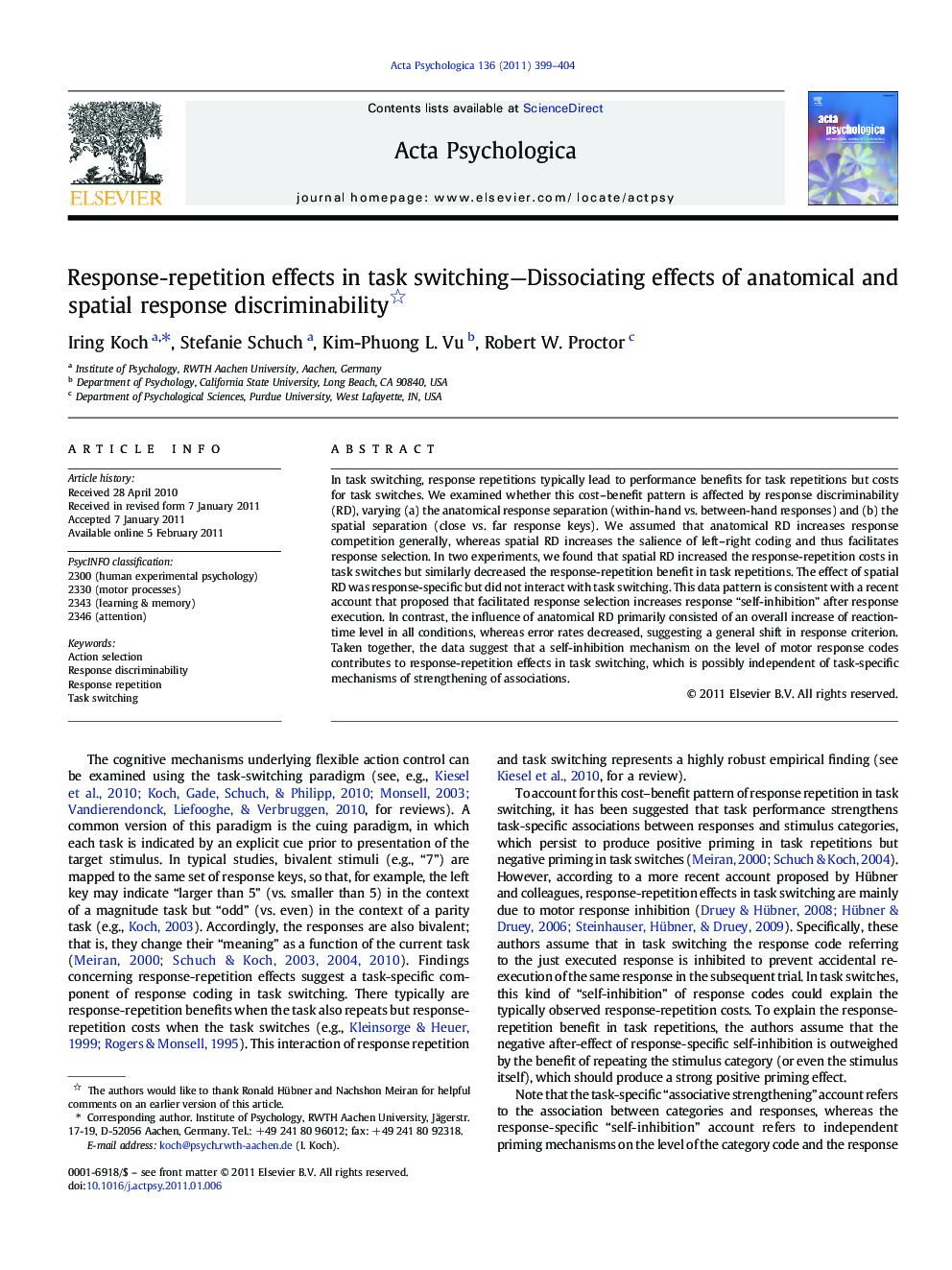| کد مقاله | کد نشریه | سال انتشار | مقاله انگلیسی | نسخه تمام متن |
|---|---|---|---|---|
| 920142 | 920268 | 2011 | 6 صفحه PDF | دانلود رایگان |

In task switching, response repetitions typically lead to performance benefits for task repetitions but costs for task switches. We examined whether this cost–benefit pattern is affected by response discriminability (RD), varying (a) the anatomical response separation (within-hand vs. between-hand responses) and (b) the spatial separation (close vs. far response keys). We assumed that anatomical RD increases response competition generally, whereas spatial RD increases the salience of left–right coding and thus facilitates response selection. In two experiments, we found that spatial RD increased the response-repetition costs in task switches but similarly decreased the response-repetition benefit in task repetitions. The effect of spatial RD was response-specific but did not interact with task switching. This data pattern is consistent with a recent account that proposed that facilitated response selection increases response “self-inhibition” after response execution. In contrast, the influence of anatomical RD primarily consisted of an overall increase of reaction-time level in all conditions, whereas error rates decreased, suggesting a general shift in response criterion. Taken together, the data suggest that a self-inhibition mechanism on the level of motor response codes contributes to response-repetition effects in task switching, which is possibly independent of task-specific mechanisms of strengthening of associations.
Research Highlights
► Response repetitions lead to benefits in task repetitions but costs in switches.
► In two task-switching experiments, we varied response discriminability (RD).
► Spatial RD (close vs. far response keys) influenced response-repetition effects.
► This influence supports accounts assuming response inhibition after execution.
► Response inhibition may complement changes in task-specific associations.
Journal: Acta Psychologica - Volume 136, Issue 3, March 2011, Pages 399–404